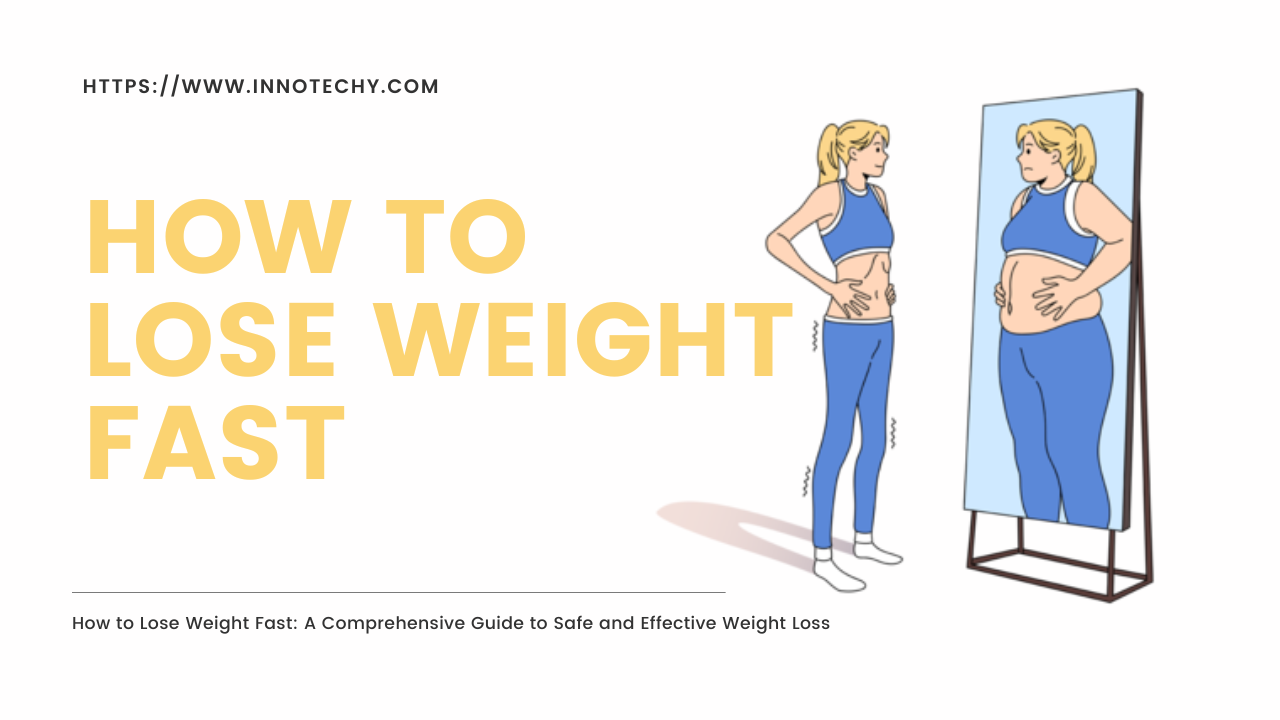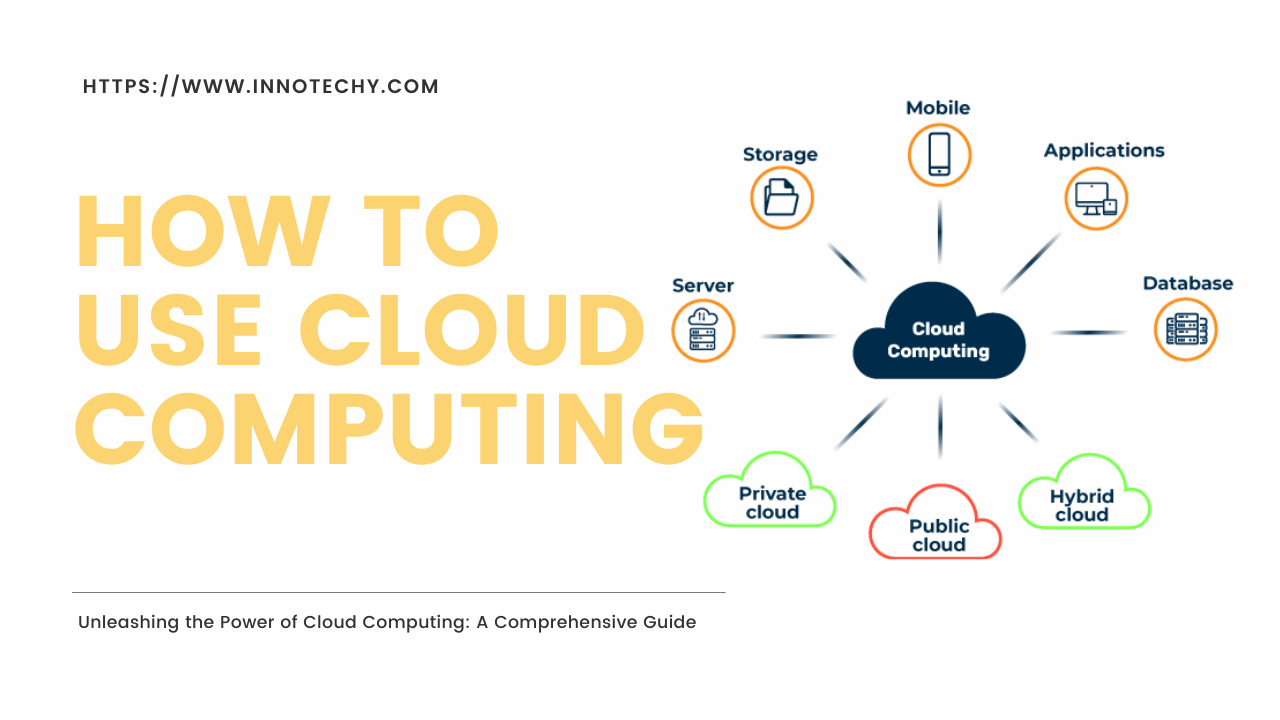How to Lose Weight Fast
Losing weight can be a difficult journey, but with the right approach, it is possible to achieve your weight loss goals safely and effectively. In this article, we will provide you with a comprehensive guide on how to lose weight fast without any side effects. We will cover various aspects of weight loss, including setting realistic goals, creating a balanced diet, incorporating exercise, making healthy lifestyle changes, monitoring progress, motivation, and professional guidance. to gain.
1. Setting realistic weight loss goals
Prior to beginning your weight loss journey, it’s crucial to create clear goals. Rapid weight loss may seem attractive, but it is often unsustainable and can lead to health problems. Instead, try to lose 1-2 pounds of weight progressively each week. This approach is healthier and more likely to result in long-term success.
2. Making a balanced and nutritious diet
Diet plays an important role in weight loss. Put an emphasis on consuming a range of nutrient-dense foods, such as fresh produce, whole grains, lean meat, and healthy fats. Avoid processed foods, sugary snacks, and excess calories. Consider portion control and eat smaller meals more frequently throughout the day to keep your metabolism active.
3. Incorporating regular exercise
Exercise is crucial for shedding pounds and improving general health. Strength training and cardiovascular exercise should both be a part of your program. Aim for at least 150 minutes per week of aerobic activity at a moderate intensity or 75 minutes at a high intensity. Additionally, incorporate strength training exercises at least two days a week to build muscle and boost your metabolism.
4. Implementing healthy lifestyle changes
To support your weight loss journey, make healthy lifestyle changes. Get adequate amounts of sleep, as lack of sleep can affect your metabolism and increase cravings. Reduce stress through meditation, yoga, or hobbies you enjoy. Avoid excessive alcohol consumption and if you smoke, quit smoking.
5. Managing portion sizes and smart eating
Paying attention to your body’s signals of hunger and fullness is a key component of mindful eating. Become more mindful of portion sizes by using smaller dishes and bowls. Eat thoroughly and savor each bite of food. Avoid distractions when eating, such as TV or electronic use. By eating more deliberately, you can lessen overeating.
6. Monitoring progress and adjusting strategy
Regularly assess your progress to maintain motivation and make required corrections. Track your weight, measurements, and body fat percentage. Celebrate small milestones along the way and reevaluate your diet and exercise strategies if you hit a plateau. For the best advice, you have to think about speaking with a professional dietician or healthcare expert.
7. Stay active and overcome plateaus
Staying active is very important during your weight loss journey. Set manageable objectives for yourself, and treat yourself when you succeed. Find an exercise buddy or join a support group to stay accountable. If you experience weight loss, don’t get discouraged. Assess your habits, mix up your exercise routine, and make changes to your diet to start growing again.
8. Avoiding fad diets and quick fixes
Avoid falling into the trap of fad diets and quick fixes that promise rapid weight loss. These foods are often unsustainable and may not provide adequate nutrition. Instead, focus on creating a balanced and sustainable eating plan that you can maintain over the long term. Remember that when it concerns losing weight, slow and steady wins every race.
9. Seek professional guidance and help
If you’re struggling with weight loss or have specific health concerns, consider seeking professional guidance. Consult a healthcare professional, such as a doctor or registered dietitian, who can assess your individual needs and provide personalized advice. They can help you create a tailored weight loss plan that takes into account your unique circumstances.
Conclusion
Rapid weight loss is possible when you approach it with the right mindset and strategy. Focus on setting realistic goals, creating a balanced diet, incorporating regular exercise, making healthy lifestyle changes, and seeking professional guidance when needed. Remember, sustainable weight loss takes time, so be patient and consistent in your efforts. With determination and persistence, you can achieve your weight loss goals and improve your overall health.
Frequently Asked Questions on Weight Loss
Is it possible to lose weight without exercise?
Yes, it is possible to lose weight without exercise, but it can be more difficult. Exercise helps burn calories and boosts metabolism, making weight loss more effective. However, weight loss is primarily dependent on creating a caloric deficit, which can be achieved through a combination of diet and physical activity. If you are unable to exercise due to certain conditions, focus on creating a balanced, calorie-controlled diet to meet your weight loss goals.
Are there any special foods that help with weight loss?
While no diet can guarantee weight loss, some foods can help in your weight loss efforts. These foods are generally low in calories, high in fiber, and packed with nutrients. Examples include fruits and vegetables, whole grains, lean proteins such as chicken and fish, beans, and healthy fats such as avocados and nuts. Adding these foods to your diet can help you feel full while consuming fewer calories.
Can I lose weight while occasionally enjoying my favorite treats?
Yes, it is possible to lose weight while enjoying your favorite treats occasionally. The key is moderation and balance. Adding occasional treats to your diet can help you satisfy cravings and prevent feelings of deprivation, which can lead to overeating. However, it’s important to be mindful of portion sizes and choose healthy options whenever possible. Maintaining a balance of nutritious, whole foods is critical to sustainable weight loss.
How long does it take to see results from a weight loss plan?
The time it takes to see results from a weight loss program can depend on a variety of factors, including your starting weight, metabolism, genetics, and adherence to the program. Normally, a safe and without harmful weight loss rate is 1-2 pounds in a week. So, you can expect to see noticeable results within a few weeks or months. However, it’s important to focus on long-term success rather than rapid weight loss, as sustainable habits lead to long-lasting results.
Is it normal to experience weight loss while traveling?
Yes, it is normal to experience weight loss during a weight loss journey. Initially, you may experience significant weight loss, but over time, your body may adapt to these changes, causing a plateau. This can be caused by a variety of factors, such as decreased metabolism, changes in hormone levels, or increased muscle mass. To overcome a plateau, consider adjusting your calorie intake, adding a variety of exercises, or seeking guidance from a healthcare professional. Remember, plateaus are a normal part of the process, and with patience and persistence, you can move forward and continue to grow.





